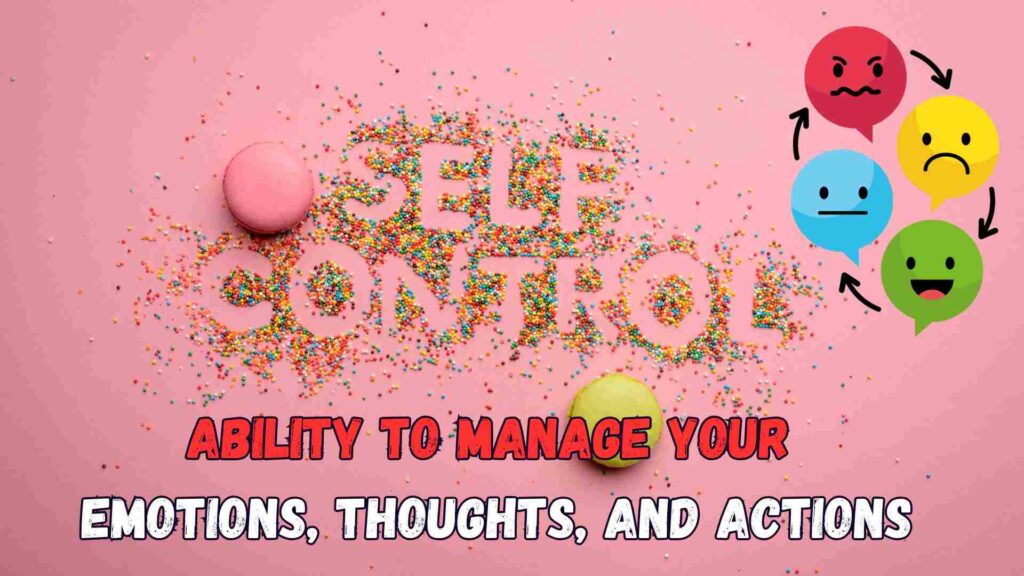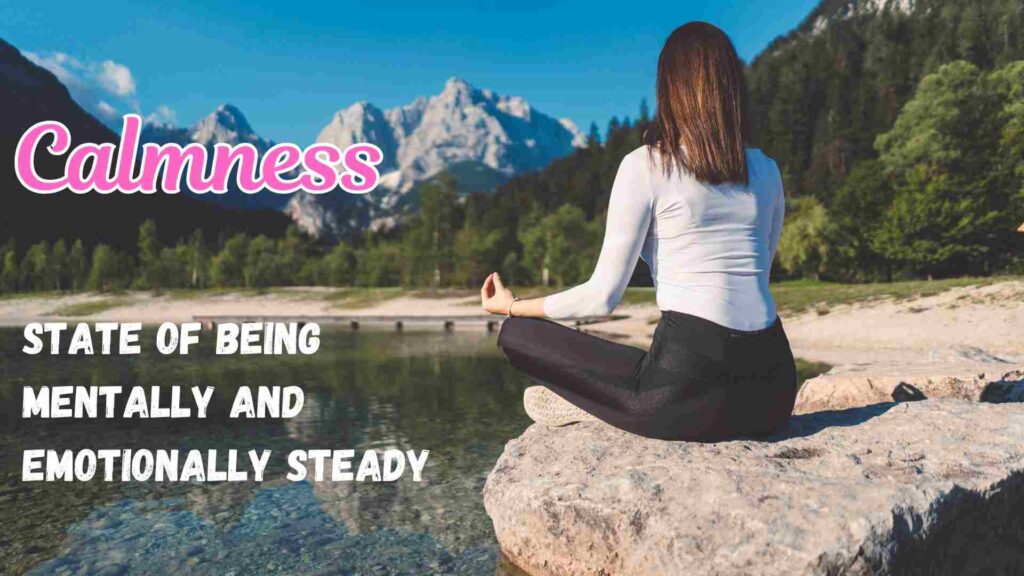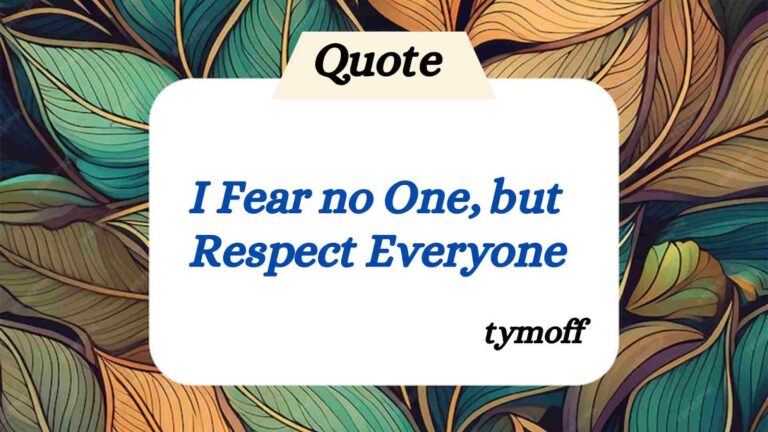
Life is full of challenges, distractions, and emotional highs and lows. In this chaotic world, mastering your emotions and decisions can feel like an uphill battle. But there’s a quote that sheds light on the power of inner discipline: “Self-Control is Strength Calmness is Mastery You – Tymoff.” These words carry a profound message about how self-control and calmness can transform your life.
In this article, we will dive deeply into the meaning of this quote, explore its applications in personal and professional life, and learn practical ways to develop these qualities. If you want to unlock your inner strength and achieve balance, read on as we discuss why self-control and calmness are the foundations of success.
What is Self-Control?
Self-control refers to the ability to manage your emotions, thoughts, and actions. It’s the skill that helps you resist impulsive behaviors, make thoughtful decisions, and stay committed to your goals. Rather than suppressing emotions, self-control is about channeling them in a way that aligns with your values and long-term objectives.
Why Self-Control is Strength
Self-control is often seen as a sign of weakness in a world that glorifies instant gratification. However, true strength lies in resisting the urge to act impulsively. It allows you to:
- Delay Gratification: Prioritize long-term rewards over immediate pleasures.
- Make Better Decisions: Avoid acting on temporary emotions or distractions.
- Build Resilience: Stay focused on goals despite challenges.
Benefits of Self-Control
- Improved Focus: By resisting distractions, you can devote more time and energy to your priorities.
- Stronger Relationships: Emotional stability fosters better communication and trust.
- Healthier Habits: Self-control helps you resist unhealthy temptations, leading to a better lifestyle.
- Career Success: The ability to manage stress and stay disciplined is valued in any professional setting.
- Emotional Stability: With self-control, you can handle highs and lows without being overwhelmed.

Understanding What is basically Calmness?
Calmness is the state of being mentally and emotionally steady, even in stressful or chaotic situations. It’s not about suppressing emotions but mastering them so they don’t control you.
Why Calmness is Mastery
Calmness is often misunderstood as passivity, but it’s a powerful skill. Being calm means:
- Maintaining Clarity: Think rationally without being overwhelmed by emotions.
- Building Confidence: Approach challenges with poise and assurance.
- Enhancing Decision-Making: Act based on logic rather than panic or impulse.
Benefits of Calmness
- Stress Reduction: Staying calm helps you manage anxiety and avoid burnout.
- Better Problem-Solving: A composed mind finds solutions faster.
- Improved Communication: Calm individuals can express themselves clearly and empathetically.
- Stronger Leadership: Calmness inspires confidence in others and fosters trust.
- Health Benefits: Reduced stress contributes to better overall physical and mental health.

The Interplay Between Self-Control and Calmness
Self-control and calmness are like two sides of the same coin. Each supports and strengthens the other, forming the foundation for emotional intelligence and resilience. Without self-control, calmness becomes difficult to achieve, and without calmness, maintaining self-control can feel overwhelming. Here’s how they work together:
1. Managing Emotional Triggers
When emotions run high, it’s easy to lose control. Self-control helps you pause and assess the situation before reacting. Meanwhile, calmness ensures you don’t let stress or anger cloud your judgment. Together, they allow you to handle emotional triggers constructively.
2. Enhancing Decision-Making
Self-control keeps you focused on your goals and prevents impulsive decisions. Calmness, on the other hand, gives you the clarity to evaluate your options logically. This combination leads to thoughtful and balanced decision-making, especially in high-pressure situations.
3. Strengthening Relationships
In personal and professional relationships, conflicts are inevitable. Self-control helps you manage your reactions, while calmness allows you to communicate effectively without escalating tensions. Together, they create a foundation for trust and mutual respect.
4. Boosting Resilience
Life often throws unexpected challenges our way. Self-control helps you stay disciplined and on track, even during tough times. Calmness enables you to maintain a positive outlook and adapt to changes with grace. This synergy builds resilience, enabling you to bounce back from setbacks stronger than before.
5. Reducing Stress
Self-control prevents you from getting overwhelmed by negative thoughts, while calmness helps you process emotions healthily. Together, they create a balanced mental state that minimizes stress and promotes well-being.
Practical Tips to Develop Self-Control
Building self-control is a journey that requires consistent effort and practice. Here are some effective strategies:
1. Set Clear Goals
- Define what you want to achieve in life.
- Break down long-term goals into smaller, actionable steps.
2. Practice Delayed Gratification
- Resist immediate temptations by reminding yourself of the bigger picture.
- For example, save money for a larger goal instead of spending it on short-term desires.
3. Mindfulness Exercises
- Practice being present in the moment to gain better awareness of your impulses.
- Techniques like deep breathing can help you pause before acting on emotions.
4. Create a Supportive Environment
- Remove distractions or triggers that weaken your self-control.
- Surround yourself with people who encourage discipline and focus.
5. Track Your Progress
- Monitor your habits and celebrate small victories.
- Use journals or apps to keep track of your self-discipline journey.
6. Learn to Say No
- Practice setting boundaries and prioritizing your time.
- Politely decline tasks or activities that derail your focus.
7. Build Mental Fortitude
- Challenge yourself with activities that require patience and persistence.
- Gradually increase the difficulty to strengthen your willpower.
Practical Tips to Cultivate Calmness
Calmness is not something you’re born with; it’s a skill that you can develop with practice. Here are some ways to master calmness:
1. Develop Emotional Awareness
- Learn to recognize your emotions and their triggers.
- Use this awareness to respond thoughtfully instead of reacting impulsively.
2. Maintain a Healthy Lifestyle
- Get enough sleep, eat nutritious food, and engage in regular physical activity.
- A healthy body supports a calm and focused mind.
3. Focus on the Present
- Avoid dwelling on the past or worrying about the future.
- Use grounding techniques like focusing on sensory details to stay present.
4. Build a Resilient Mindset
- View challenges as opportunities to grow.
- Practice gratitude and affirmations to maintain a positive outlook.
5. Practice Deep Breathing
- Take slow, deep breaths to calm your nervous system.
- Techniques like the 4-7-8 method can help you regain composure.
6. Limit Negative Influences
- Minimize exposure to stress-inducing environments or people.
- Curate a positive, peaceful space around you.
7. Meditation and Relaxation
- Spend 10–15 minutes daily focusing on your breath or practicing mindfulness.
- Techniques like body scanning or guided meditations can enhance inner peace.
Real-Life Applications of Self-Control and Calmness
These qualities find practical application in nearly every aspect of life. Here are specific examples:
1. Personal Relationships
- Conflict Resolution: Self-control prevents escalation during arguments, while calmness helps in understanding and addressing the root cause of disagreements.
- Parenting: Staying patient with children, especially during tantrums or challenging moments, fosters a nurturing environment.

2. Professional Settings
- Leadership: Leaders who demonstrate self-control earn respect by handling crises without panic. Calmness inspires teams to remain focused and productive.
- Time Management: Self-control aids in resisting distractions, while calmness ensures you tackle tasks methodically.
3. Health and Fitness
- Healthy Lifestyle Choices: Self-control helps resist unhealthy habits, and calmness reduces stress, supporting overall well-being.
- Exercise Discipline: Self-control ensures you stick to a fitness routine, and calmness keeps you motivated during setbacks.
4. Academic and Learning Environments
- Focus and Persistence: Self-control minimizes procrastination, while calmness enhances concentration during exams or while learning new skills.
5. Financial Management
- Impulse Control: Avoiding unnecessary purchases through self-control supports financial goals.
- Calm Decision-Making: During financial crises, staying calm helps in creating effective recovery strategies..
Inspirational Stories of Self-Control and Calmness
Story 1: The Athlete’s Discipline
An Olympic athlete once shared how self-control helped them resist unhealthy foods and maintain a strict training schedule. Their calmness during competitions allowed them to perform at their best, even under immense pressure.
Story 2: The Leader’s Calm
A CEO of a successful company attributed their success to staying calm during financial crises. By maintaining composure and exercising self-control, they made strategic decisions that turned the company around.
Story 3: The Parent’s Patience
A parent shared how self-control helped them stay patient with their children, fostering a nurturing and supportive home environment. Their calm approach helped resolve conflicts and teach valuable life lessons.
Common Challenges and How to Overcome Them
Developing self-control and calmness isn’t always straightforward. Here are some common hurdles and strategies to address them:
1. Dealing with Emotional Triggers
- Challenge: Strong emotions like anger or frustration can lead to impulsive reactions.
- Solution: Practice mindfulness techniques such as deep breathing or counting to ten before responding. Journaling can also help you process emotions constructively.

2. Maintaining Consistency
- Challenge: It’s easy to lose motivation or give in to distractions over time.
- Solution: Set small, realistic goals and track your progress. Use reminders or accountability partners to stay on course.
3. Handling External Stressors
- Challenge: Workload, family pressures, or unexpected crises can disrupt your calmness.
- Solution: Develop a strong support network and practice self-care. Use time management tools to prioritize responsibilities effectively.
4. Overcoming Negative Self-Talk
- Challenge: Inner criticism can weaken your self-control and calmness.
- Solution: Replace negative thoughts with affirmations. Focus on your strengths and achievements to build a positive mindset.
- Challenge: Making critical decisions under pressure can be overwhelming.
- Solution: Use structured frameworks like pros-and-cons lists to evaluate options objectively. Break down decisions into smaller steps for clarity.
By recognizing these challenges and applying practical strategies, you can steadily improve your ability to exercise self-control and maintain calmness, even in the most demanding circumstances.
Final Thoughts: Building Your Inner Strength
Self-control is strength. Calmness is mastery. You – Tymoff reminds us that these qualities are not just virtues but essential life skills. They help you stay focused on your goals, handle stress with grace, and build meaningful relationships.
Start small. Incorporate daily habits like mindfulness and goal-setting into your routine. Celebrate your progress and learn from setbacks. Over time, you’ll notice a profound change in how you handle life’s challenges.
By mastering self-control and calmness, you unlock your true potential. These traits are the key to a balanced, fulfilling, and successful life. So, take the first step today and embrace the journey of becoming the best version of yourself.


